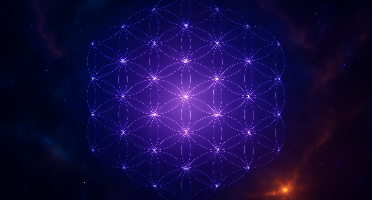
thomascal
Project OwnerOverall project leadership, strategic direction, and primary liaison for Orpherium. Responsible for high-level architecture and ethical alignment, tetrahedral hierarchy, network sharding design
DEEP Connects Bold Ideas to Real World Change and build a better future together.
Coming Soon
A novel, distributed oracle-based knowledge graph framework engineered to significantly enhance neural-symbolic reasoning processes within AGI systems. Diverging from centralised cloud-based architectures, Orpherium employs a distributed tetrahedral hierarchy of specialized agent nodes (Aggregators, Coherents, Oracles, and Sage Oracles). This decentralized, peer-to-peer sharded network facilitates a continuous "upward wave" of knowledge refinement from raw data to actionable insights, coupled with a bidirectional knowledge feedback mechanism to lower-level agents while maintaing direct compatibility with MeTTA and MORK
This RFP seeks the development of advanced tools and techniques for interfacing with, refining, and evaluating knowledge graphs that support reasoning in AGI systems. Projects may target any part of the graph lifecycle — from extraction to refinement to benchmarking — and should optionally support symbolic reasoning within the OpenCog Hyperon framework, including compatibility with the MeTTa language and MORK knowledge graph. Bids are expected to range from $10,000 - $200,000.
Thorough research and design phase meticulously outlining the theoretical underpinnings and technical specifications of the Orpherium Framework. We'll detail the precise roles and interactions of the four hierarchical agent nodes (Aggregators Coherents Oracles Sage-Oracles) within the distributed peer-to-peer network. A critical component will be the explicit design of the bidirectional knowledge feedback mechanisms showing how insights from higher-level Oracles flow back to influence lower-level Aggregators and Coherents. We'll also define the conceptual approach for network sharding of knowledge fragments by Coherents. Crucially this milestone will lay out the human-centric governance model specifying how Oracle-generated proposals for ontology modulation and algorithmic variance are presented to node supporters for liquid democratic voting ensuring trusted human oversight and control over the AGI's evolving knowledge base.
• Detailed Research and Design Plan: A comprehensive document outlining the theoretical framework design principles and technical approach for Orpherium. Emphasizing its distributed data iteration waves bidirectional feedback and human governance integration. • Agile Breakdown of Tasks and Timeline: A GitHub Project board with specific tasks assigned responsibilities and a detailed timeline for the entire project lifecycle. • Distributed Architecture Specification: A formal specification ( MeTTa-like pseudocode UML diagrams and textual descriptions) of the tetrahedral hierarchy node interactions data flows and initial data schemas for sharded graph representation. Also Including a clear definition of the proposal mechanism for human governance.
$25,000 USD
• Comprehensive technical plan covering all architectural components, data flows, and governance mechanisms. • Explicit definition of bidirectional feedback loops and sharding logic. • Clear specification of the human governance proposal and voting mechanism. • All deliverables are documented, reviewed internally, and ready for SingularityNET feedback.
Involves the initial development of the core distributed components of Orpherium. We'll implement prototypes of at least one Aggregator node and one Coherent node to demonstrate the foundational "upward wave" of raw data ingestion and preliminary refinement. The prototype will explicitly showcase the Coherent's crucial role in network sharding knowledge fragments across a simulated P2P network illustrating how data is intelligently distributed for efficient storage and parallel processing. We will also develop a conceptual model or simplified prototype demonstrating the bidirectional flow of feedback from a higher-level agent (a mock Oracle output) back to a Coherent or Aggregator illustrating how insights can influence lower-level operations.
• Working Prototype Code: A functional documented codebase for initial Aggregator and Coherent nodes capable of ingesting data and performing basic knowledge fragment processing and sharding in a distributed environment. • Sharding Mechanism Demonstration: A clear demonstration of the Coherent's sharding capabilities showing how knowledge fragments are distributed across mock or actual network nodes. • Conceptual Bidirectional Feedback Prototype: A simple implementation or detailed simulation illustrating the flow of feedback from a higher conceptual layer down to Aggregator/Coherent functions. • Initial Testing Results: Documented results of preliminary tests validating data flow knowledge transformation steps and initial analysis against conceptual benchmarks for noise reduction and data consolidation within the sharded distributed architecture.
$45,000 USD
• Functional Aggregator and Coherent node prototypes operational in a simulated distributed network. • Demonstrable evidence of knowledge fragment sharding and distribution. • Conceptual implementation of bidirectional feedback loops. • Initial test results show feasibility and basic functionality, passing defined internal test cases. • All code is open-sourced on GitHub with basic documentation.
This final milestone brings the Orpherium Framework to a more complete state focusing on the higher-level reasoning capabilities of the Oracle nodes and the integration of human-centric governance. We'll develop a robust prototype or highly detailed specification of an Oracle node demonstrating its ability to perform sophisticated consistency checks apply ethical reasoning (trained on empathic principles ethics and aesthetics) and formulate proposals for knowledge graph modulation (ontology adjustments algorithmic variance). We'll showcase how these proposals are presented for human governance via liquid democratic rules. The demonstration will encompass the end-to-end "upward wave" of data refinement the bidirectional knowledge feedback loop (including democratically approved changes flowing downwards) and the efficiency of network sharding.
• A functional prototype or comprehensive technical specification of an Oracle node showcasing its reasoning capabilities ethical alignment and its ability to generate proposals for KG modulation. • Comprehensive Demonstration: A working demonstration of Orpherium illustrating the full distributed lifecycle from raw data ingestion through sharding by Coherents to refined ethically grounded knowledge at the Oracle level incorporating the bidirectional feedback and conceptual human governance. • Final Report with Performance Analysis: A detailed technical report covering the framework's distributed architecture implementation specifics performance analysis (including conceptual scalability analysis for MORK integration and sharding efficiency) and an assessment of its ethical alignment mechanisms and human control points. • Full Documentation & Examples: Complete documentation for all Orpherium components including API specifications developer guides and examples for adoption and reuse within a distributed environment with specific sections on sharding strategies bidirectional feedback loops and governance integration. • Recommendations for Hyperon/MORK Integration: Specific actionable recommendations for future research development and deeper integration with MeTTa MORK ECAN and DAS outlining clear pathways for realizing the full potential of Orpherium within Hyperon's decentralized AGI ecosystem.
$50,000 USD
• Functional Oracle node prototype or a highly detailed, implementable specification that demonstrates ethical reasoning and proposal generation. • End-to-end framework demonstration clearly showcasing distributed operations, sharding, and bidirectional feedback. • Detailed performance analysis aligning with project goals for prototyping scale. • Comprehensive documentation enabling third-party adoption. • All deliverables are finalized, reviewed, and prepared for submission.
Reviews & Ratings
Please create account or login to write a review and rate.
Check back later by refreshing the page.
© 2025 Deep Funding
Join the Discussion (0)
Please create account or login to post comments.